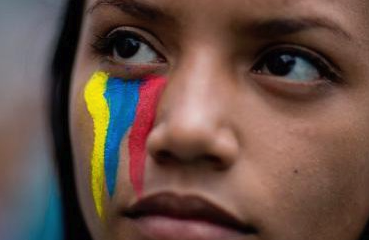Maduro still relies on a small social support base; according to the results of the past elections, only a quarter of voters support him, signaling a resounding electoral defeat. Yet, he maintains the ability to mobilize people, especially militants organized into strike forces. He also depends on institutional leaders and a minimally cohesive military leadership, particularly given the uncertainty that the regime’s fall would bring. Moreover, he benefits from the ideological legacy of the founding of Chavismo and has external support from authoritarian governments, both major (China and Russia) and minor (Iran, North Korea). The conclusion from this assessment is that Maduro’s regime will not be easy to topple.
Identifying the factors that weaken his regime is also not simple. But before addressing that, it’s important to dismiss certain extremes. First, the idea that a soft approach toward the regime increases the chances for a democratic transition is both naive and harmful. A lenient acceptance of Maduro’s government will inevitably prolong it. Similarly, at the opposite extreme, a mere formal rejection of his regime does not help overcome the crisis and can even lead to its entrenchment. Political rejection must be accompanied by corresponding actions.
If a violent solution is ruled out, the only remaining option is a forced negotiation. In this regard, I’m not convinced by the image presented by Nobel Peace Prize laureate Oscar Arias, who claims Venezuela is now a narco-state, especially if this view is linked to what happened with Noriega in Panama. Labeling Maduro’s regime a narco-government oversimplifies the nature of his autocracy. Moreover, the kind of surgical operation carried out in Panama would be an unmanageable risk in Venezuela.
Indeed, any political negotiation must come from a position of strength. The non-negotiable basis of this strategy must be the demand to respect the transparency of previous elections, based on the verification of voting records. Until this demand is met, there should be no full recognition of Maduro’s presidency.
This is the red line that the internal opposition maintains, and it must also be the standard for democratic governments in the Americas and Europe. These latter governments must complement their actions with sanctions that align with this principled stance. Of course, these measures must be scalable and precisely targeted. For example, sanctions discussed by the Biden administration that target high-ranking members of the Chavista regime are beneficial in undermining the cohesion of the ruling elite without constituting a national attack on Venezuela.
However, all these firm actions must be part of a broader perspective of negotiation, even if that negotiation is not immediate: acknowledgment of electoral defeat and guarantees of non-reprisal. If such a negotiation isn’t possible, it should be considered in the medium term: holding new elections in one or two years. The key point is that the door to negotiation must remain open, both for Chavista leaders and the entire Venezuelan population. It must also be clear that this is a real negotiation, not a tactic to maintain power or an attempt to provoke the regime’s immediate collapse.
Against this backdrop, there may be “timeouts,” involving some form of mutual concessions. An example is the exit of Edmundo González, the opposition candidate who won the last election, as he sought political asylum in Spain. As opposition leader Corina Machado said, “his personal safety was at risk,” and his departure shows the limits of the regime’s repressive apparatus. At the same time, Maduro’s government was relieved of a hot potato. Both sides will surely try to gain political advantage from this unfortunate situation, but if they firmly maintain their positions, González’s exit won’t decisively disrupt the current balance of power.
This strategy, focused on a forced negotiation, certainly requires significant coordination both inside and outside the country, as well as careful judgment in choosing the appropriate measures—not too conciliatory (like those proposed by Rodríguez Zapatero) nor too extreme (as some Venezuelans in exile suggest). Additionally, there are important lessons from the comparative analysis of other democratization processes: no one can replace the Venezuelan people in choosing a sound strategy, and special attention must be given to unexpected events.













